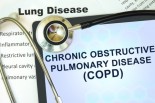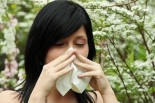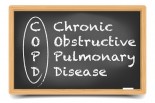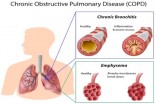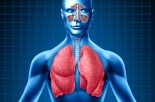Search Podcasts
Wednesday, 06 March 2024 01:00
The Discovery of Novel Serum Biomarker “Proteoglycan 4” for Acute Lung Injury Following Cardiac Surgery in Infants and Children
Published in
Childrens Hospital of Alabama - Peer
Friday, 16 February 2024 01:00
White Lung Syndrome - What Is It and Should You Be Concerned?
Published in
Henry Mayo Newhall Hospital - Its Your Health Radio
Monday, 27 February 2023 00:00
How Does Cystic Fibrosis (Cystic Fibrosis) Affect Children?
Published in
Memorial Care - Weekly Dose of wellness
Wednesday, 21 December 2022 00:00
How to Stay Safe from RSV
Published in
Memorial Care - Weekly Dose of wellness
Monday, 14 November 2022 00:00
Breathe In and Look Out for Pediatric Breathing Conditions
Published in
Maimonides Health
Tuesday, 04 January 2022 00:00
What is PCD?
Published in
Memorial Care - Weekly Dose of wellness
Monday, 25 October 2021 00:00
Keeping Your Child’s Lungs Healthy
Published in
Weill Cornell Medicine - Primary Care
Monday, 23 August 2021 00:00
TOTAL Trial Results for CDH Patients with Dr. Anthony Johnson
Published in
Memorial Hermann
Tuesday, 05 January 2021 00:00
Severe Asthma Takes More than Standard Treatments to Manage
Published in
Memorial Care - Weekly Dose of wellness
Wednesday, 11 November 2020 00:00
Pulmonary Fibrosis and the UK HealthCare Interstitial Lung Disease Clinic
Published in
UK HealthCast
Friday, 21 August 2020 00:00
Healthy Lungs – Staying & Getting Healthy in Today’s COVID World
Published in
Franciscan Health
Tuesday, 18 February 2020 00:00
Breathe Easier: Understanding Asthma and COPD
Published in
McLaren Health
Monday, 20 January 2020 00:00
Chronic Obstructive Pulmonary Disease (COPD)
Published in
University of Maryland Upper Chesapeake Health
Wednesday, 27 November 2019 08:00
The Dangers of Vaping
Published in
University of Maryland Upper Chesapeake Health
Tuesday, 12 November 2019 00:00
A New Treatment for Severe COPD: The Zephyr Valve
Published in
Eisenhower Health - Living Well
Friday, 18 October 2019 08:00
Breathe Easy: Pulmonary Care
Published in
Tenet Health Central Coast - Consumer
Wednesday, 09 October 2019 08:00
Spike In Lung Disease Cases Shines Light On The Dangers Of Vaping
Published in
St. Louis Childrens - Radio Rounds
Thursday, 04 April 2019 00:00
Shortness of Breath with Exercise
Published in
Cayuga Medical Center
Thursday, 25 October 2018 00:00
Lung Cancer - Risk Factors, Screening and Treatment
Published in
Dignity Health
Tuesday, 02 October 2018 16:59
Healthy Lung Month: 3 Incurable Lung Diseases to Be Aware Of
Lung health and function are not easily ignored. Each day, the average human takes somewhere between 16,000 and 30,000 breaths. So many of us breathe effortlessly on a daily basis, but for others, it is a constant battle to make it through their day.
October is the time to celebrate happy lungs and to understand issues for serious lung problems.
Published in
RadioMD Blog
Wednesday, 14 March 2018 16:17
Have Asthma? 4 Ways to Improve the Air Quality in Your Home
For those that have asthma, it is important to reduce the triggers that aggravate it as much as possible. The best place to start is with the home.
The home, where asthmatics spend the most time, may have more asthma triggers than you realize.
Here are four ways to improve the air quality in your home to make life easier, and healthier, for both asthmatics and non-asthmatics alike.
Published in
RadioMD Blog
Friday, 20 October 2017 00:00
Rush Hour Pollution Toxicity
Published in
Wellness for Life
Monday, 14 August 2017 14:46
Thoracic Surgery at UK HealthCare
Published in
UK HealthCast
Monday, 31 July 2017 16:25
Lung Cancer Screening: Is it Right for You?
Published in
Memorial Care - Weekly Dose of wellness
Monday, 03 July 2017 18:00
Chronic Lower Respiratory Diseases in Men
Published in
Rochester regional - ROC Your Health Radio
Tuesday, 14 March 2017 16:44
Risk Factors, Diagnosis and a New Era of Treatment Options for Lung Cancer
Published in
Memorial Care - Weekly Dose of wellness
Sunday, 05 February 2017 14:54
Do You Suffer From COPD?
Published in
Aspirus Health Talk
Wednesday, 18 January 2017 16:01
Flu Can Be Serious for Children with Asthma
Published in
Memorial Care - Weekly Dose of wellness
Wednesday, 12 October 2016 12:53
Healthy Lung Month: How to Keep Your Body Breathing
On average, a person takes approximately 17,000-23,000 breaths a day. The number varies based on several factors, including a person’s lifestyle and environment.
This statistic proves just how important the lungs are. You are constantly using them to fuel the rest of your body.
Lungs act at the first point of contact for oxygen as it enters the body. From there, oxygen is dispersed throughout the bloodstream, being carried to cells throughout the body. Each cell transfers carbon dioxide when it receives oxygen. The blood carries the carbon dioxide back to the lungs where it is removed through exhaling. This gas exchange is necessary for everyday functioning.
In order to keep this process going, it’s crucial to keep your lungs healthy. Lung-related health complications can negatively affect the oxygen flow to your cells, along with a variety of other body processes. These ailments vary from viruses and colds to chronic conditions and lifelong sickness and cancer. Certain lung conditions can be hereditary, or caused by genetics. Such conditions include asthma, cystic fibrosis, and chronic obstructive pulmonary disease (COPD).
However, certain lung conditions are non-inheritable; that is, caused by environmental and lifestyle factors. While not always 100% preventable, these conditions can be avoided.
Published in
RadioMD Blog
Thursday, 30 June 2016 11:45
How Weather Fluctuations Impact Your Lungs
Published in
Health Radio
Thursday, 26 May 2016 11:45
Protecting Kids From E-cigs & Tobacco Products
Find out how new changes to the FDA's authority will protect children from e-cigarettes and tobacco products.
Published in
Health Radio
Wednesday, 27 April 2016 11:45
Your Health & the “State of the Air”
Published in
Health Radio
Saturday, 16 April 2016 14:25
Living Well with COPD
The lung condition called chronic obstructive pulmonary disease (COPD) makes it feel impossible to catch your breath.
Published in
YOU The Owners Manual Podcast
Thursday, 07 April 2016 11:34
Allergy & Asthma Season: What You Should Know
Published in
Health Radio
Wednesday, 24 February 2016 10:22
Safe Exercises for Lung Disease Patients
Published in
Healthy Talk w/ Dr. Michael Smith
Wednesday, 24 February 2016 10:11
Stem Cell Therapy Takes on Lung Disease
Published in
Healthy Talk w/ Dr. Michael Smith
Thursday, 11 February 2016 10:39
What You Need to Know About Lung Cancer
Published in
City of Hope Radio
Thursday, 28 January 2016 11:46
The Invisible Health Threat: Radon Gas
Published in
Health Radio
Thursday, 21 January 2016 14:00
Understanding Environmental Allergies
Published in
Memorial Care - Weekly Dose of wellness
Monday, 21 December 2015 11:00
Hypersensitivity Pneumonitis: What Are the Most Common Causes and Treatments?
Published in
University of Virginia Health System
Thursday, 19 November 2015 11:06
Understanding COPD
Published in
Health Radio
Thursday, 19 November 2015 11:00
Smoking Cessation is Key to Preventing Lung Cancer
Published in
Memorial Care - Weekly Dose of wellness
Thursday, 12 November 2015 11:06
Stem Cell Therapies Help Treat COPD
Published in
Health Radio
Monday, 05 October 2015 12:40
Lung Cancer Trends in Women and Non-Smokers
Published in
City of Hope Radio
Thursday, 23 July 2015 11:45
Ask HER: Reapplying Sunscreen PLUS Reducing Cholesterol
Published in
HER
Monday, 13 July 2015 09:52
Can You Really Quit Smoking? Yes You Can!
Published in
Summit Medical Group
Monday, 06 July 2015 10:15
Can You Quit Smoking? Yes You Can!
Published in
City of Hope Radio
Friday, 15 May 2015 12:00
Breathe Easy: Everything You Need to Know about Lung Health
You commute, you bike, run, walk outside, breathing in everything that is in the environment around you... how is this affecting your lungs?
Published in
Wellness for Life
Sunday, 30 November 2014 11:47
The Latest in Life Saving Lung Cancer Research And Treatment
Published in
City of Hope Radio
Wednesday, 19 November 2014 12:11
MemorialCare Todd Cancer Institute Helps You Combat Lung Cancer, Which is the Leading Silent Cancer Killer in the Nation
Published in
Memorial Care - Weekly Dose of wellness





























